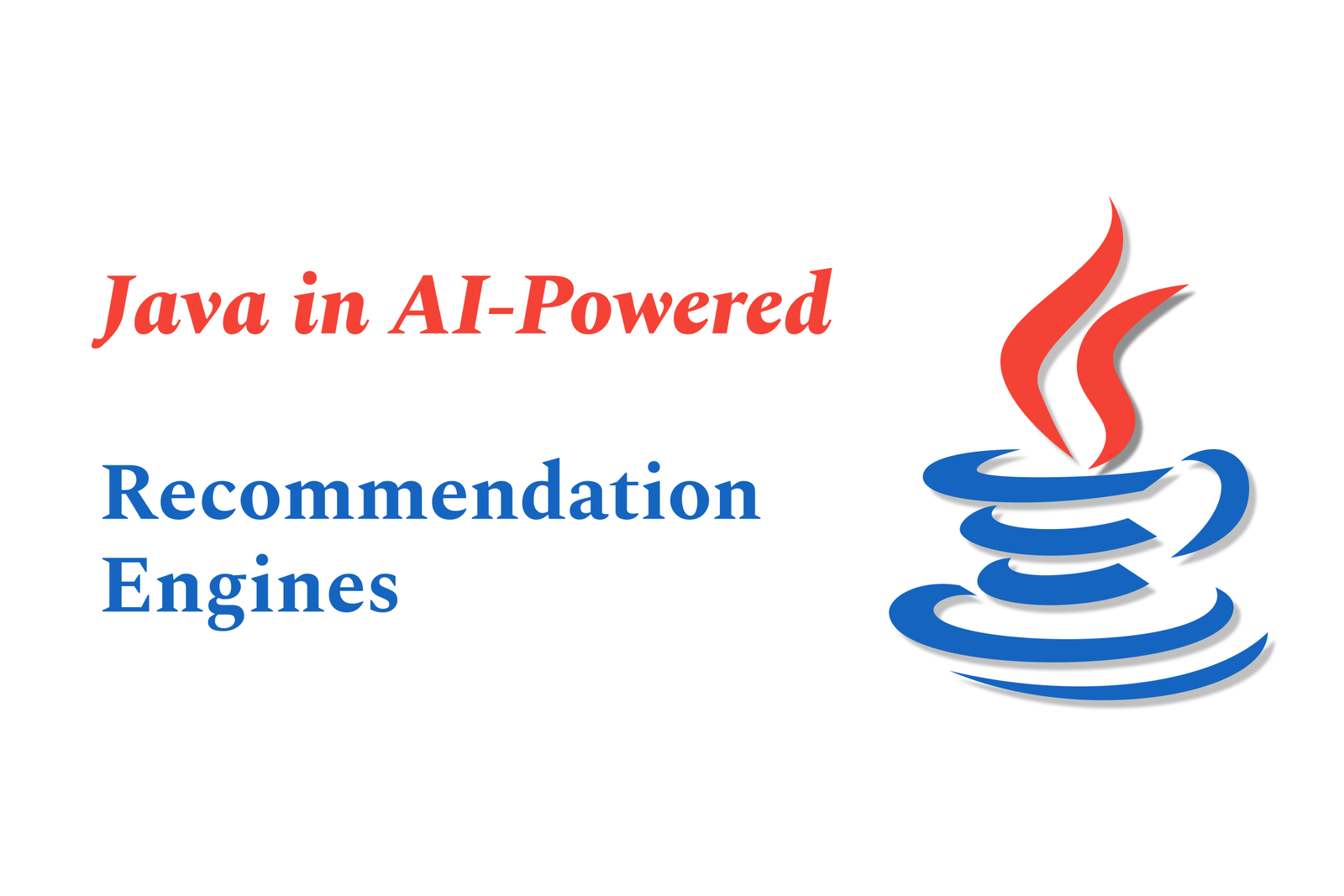Java in AI-Powered Recommendation Engines
Java plays a key role in AI-powered recommendation engines by providing a robust, scalable platform for developing algorithms that analyze user data and deliver personalized suggestions, making it ideal for building efficient, enterprise-grade AI systems in e-commerce and beyond.
Java in AI Powered Recommendation Engines
1 ) Introduction to AI Powered Recommendation Engines
AI powered recommendation engines use advanced algorithms to analyze user data and deliver personalized product, service, or content suggestions. These systems are integral to enhancing user experience and driving sales across industries such as e commerce, media, and entertainment.
2 ) Significance and Market Growth
The recommendation engine market is rapidly expanding, expected to reach over USD 15 billion by 2026 with a CAGR of 37.46%. E commerce platforms benefit significantly, with 71% incorporating recommendation features, and users interacting with recommendations showing up to 4.5 times higher purchase likelihood.
3 ) Types of Recommendation Systems
Collaborative Filtering: Predicts user preferences based on behavior patterns of similar users, commonly used in services like movie streaming.
Content Based Filtering: Focuses on item attributes to recommend similar products or content matching user profiles, such as book genres or authors.
4 ) AI Applications in Recommendation Engines
AI enhances the personalization capability of recommendation engines by analyzing vast datasets including browsing history, purchase behavior, and demographics, enabling precise user preference predictions. This leads to better engagement, customer retention, and revenue growth.
5 ) Role of Java in AI Recommendation Systems
Java remains a robust and reliable programming language widely adopted for developing AI powered applications including recommendation engines. With the emergence of new AI frameworks and libraries compatible with Java, developers can efficiently build intelligent, scalable AI tools such as real time data trackers, chatbots, and customization engines.
6 ) Advantages of Using Java for AI Development
Java’s strength lies in its stability, scalability, and extensive ecosystem which supports the integration of AI models and machine learning algorithms. This makes it ideal for enterprise grade recommendation systems requiring high performance and reliable maintenance.
7 ) Best Practices for Developing AI Powered Recommendation Engines
Collect and preprocess comprehensive user data for accurate modeling.
Choose appropriate algorithms (collaborative or content based) based on use case.
Implement scalable architecture using Java frameworks and cloud services.
Continuously test and refine the models to adapt to changing user behavior.
Ensure seamless integration within existing business platforms to maximize impact.
8 ) Industry Adoption and Benefits
Industries like e commerce and media report significant revenue and engagement improvements through AI driven recommendations. Personalized suggestions increase conversion rates, reduce churn, and enhance customer satisfaction, making AI recommendation engines essential tools for modern businesses.
This summary highlights the pivotal role of Java in crafting AI powered recommendation engines that boost personalization and business performance in today’s digital landscape.
https://justacademy.in/news-detail/java-in-financial-trading-systems:-trends-2025
https://justacademy.in/news-detail/ios-developer-jobs-on-the-rise-in-india
https://justacademy.in/news-detail/flutter-for-startups:-quick-mvp-building-guide
https://justacademy.in/news-detail/java-and-apache-kafka:-new-integration-features
https://justacademy.in/news-detail/java-23-string-api-updates:-what-to-know
Related Posts
In 2025, top Angular libraries offer modern, feature-rich components and tools for building dynamic web apps. From powerful data grids to low-code platforms like UI Bakery, these libraries enhance development speed, UI design, and scalability, making them essential for Angular developers.
Migrating from AngularJS to Angular 17 involves gradually upgrading your app by running both frameworks together using tools like ngUpgrade, rewriting components in TypeScript, and adopting Angular’s modern architecture to enhance performance, maintainability, and long-term support.
Angular state management tools help organize and handle app data efficiently, improving scalability and maintainability. Popular options include NgRx for robust, RxJS-based patterns, and newer Signal Store solutions that offer simpler, reactive approaches integrated tightly with Angular’s latest features.
RxJS in Angular empowers developers to manage asynchronous data streams with powerful operators like `forkJoin`, `combineLatest`, and `zip`. Mastering these key operators in 2025 is essential for building efficient, reactive applications that handle complex event sequences seamlessly.
Angular performance optimization in 2025 focuses on improving app speed and responsiveness by using techniques like OnPush change detection, lazy loading, efficient data caching, and AOT compilation. These practices reduce load times, enhance user experience, and ensure scalable, fast Angular applications.
In 2025, Angular remains preferred for large-scale, enterprise apps with its robust, all-in-one framework, while Vue attracts developers seeking simplicity and fast development for smaller projects. Both frameworks excel, with choice driven by project needs and team expertise.
Angular Signals are a new reactive primitive in Angular 16 that enable fine-grained, efficient change detection by automatically tracking dependencies and updating only affected parts of the UI. They simplify state management and boost app performance, revolutionizing Angular's reactivity model.
Angular interview questions to prepare in 2025 focus on core concepts like components, directives, data binding, routing, and dependency injection, along with TypeScript mastery and latest Angular features to ensure strong practical knowledge for building scalable, efficient web applications.
AngularJS reached its official end of support in January 2022, meaning no further updates or security patches. To ensure app security and performance, developers should consider migrating to modern Angular versions or seek third-party long-term support options if immediate migration isn’t possible.
The Angular Roadmap 2025 highlights upcoming features focused on improving developer experience and performance, including zoneless Angular, Signals integration, enhanced Forms, async data handling, improved HMR, and expanded Angular Material/CDK enhancements, driving modern, efficient web app development.










